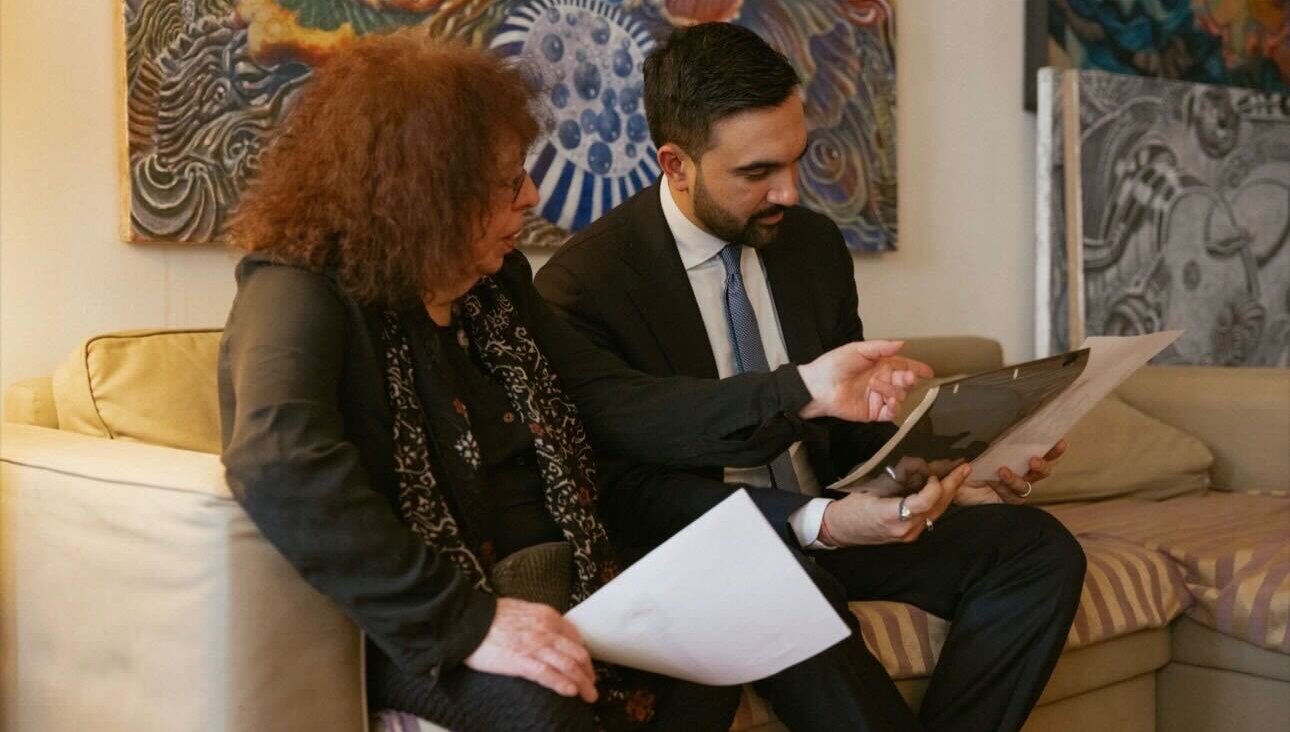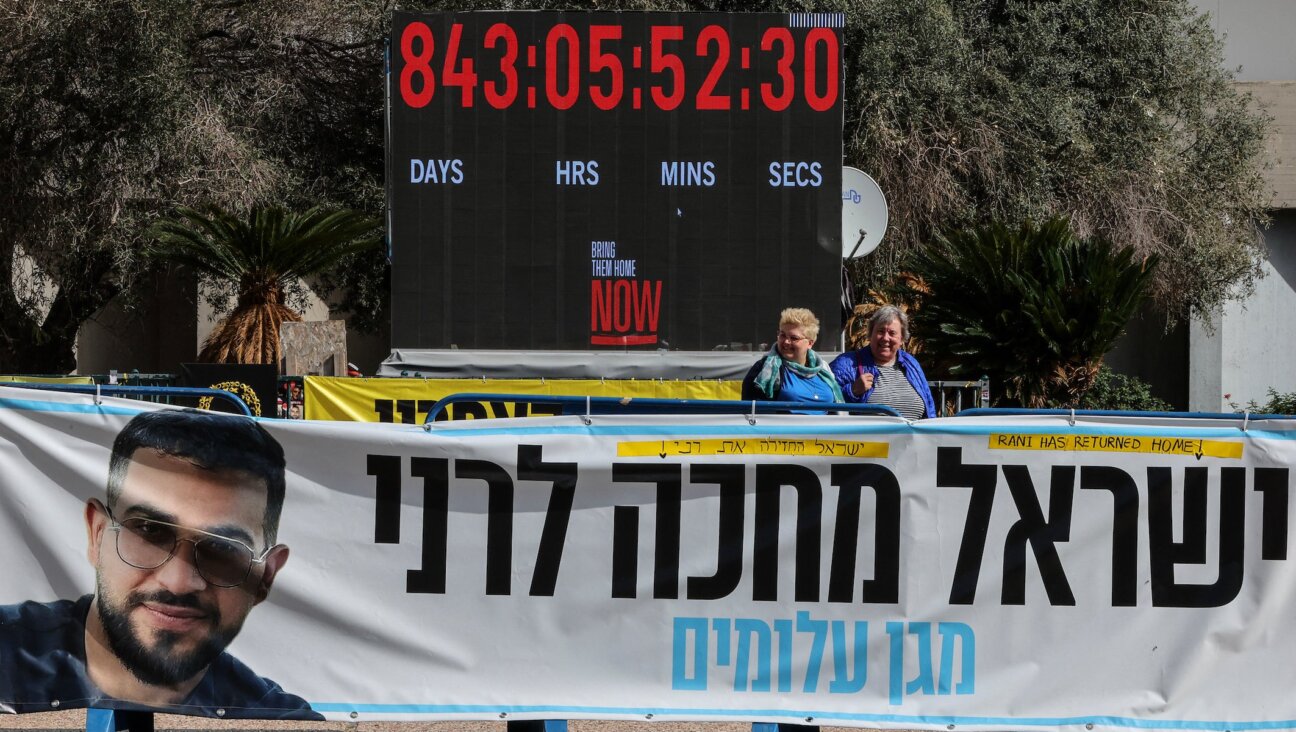Novelist Etgar Keret Says He Doesn’t Publish in Hebrew Because Privacy
— The celebrated novelist Etgar Keret said he refrains from publishing some of his works in Hebrew to protect the privacy of his family, upon whom he bases some of his writing.
Keret, who in 1996 received Israel’s Prime Minister Award for Literature, among other distinctions, revealed this during a talk last week before Russian Jews in St. Petersburg during that city’s Limmud FSU Jewish learning festival.
At a lecture attended by more than half of the 650 people who attended the conference in Russia’s cultural capital, Keret said his selective publishing strategy began at the request of his son Lev when he was 7.
“I told him that some of the stuff I’m writing was based on the family and that I wanted his permission to publish it,” Keret said. “He said no, ‘I see no advantage in having information about me published,’ which both messed up my plan to both be a good dad and still publish my book, and made my wife and I believe he’ll grow up to be a corrupt politician.”
Keret subsequently obtained permission from his son to publish that book, “The Seven Good Years,” though initially not in Hebrew, leading to its publication in English, Farsi and other languages before it finally appeared in its original Hebrew in Israel last year, with his son’s permission.
But, Keret said during the talk, this selectiveness has exposed him to accusations of disloyalty to Israel.
He faced considerable criticism in Israel last year following the publication of an interview he gave The Guardian in which he explained how he explained to Lev about roadblocks that the Israel Defense Forces uses in the Western Bank.
Keret and his wife set up a checkpoint in their living room, he said.
“Every time he passed he would have to answer a question. Why do you need to pass? He’d say I need to pee, so I’d say do you really need to pee? When was the last time you peed? And after two hours he said I know why Palestinians are fighting, I’d fight too,” he told The Guardian.
In the same interview, Keret said he opposes attempts to boycott Israel.
“Although I sympathize with the Palestinians’ fight, I can’t say I’m pro-Palestinian,” he said. “I’m not pro-Hamas, pro-gay persecution, pro-terrorist attack.” Supporting those ideas, he said, would be to “patronize them – it’s like saying they don’t deserve the ambiguity that we extend to other people.”














